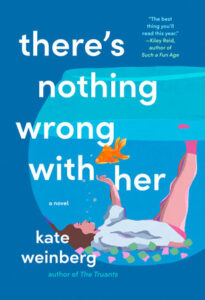On the Life and Legacy of a 15th-Century Italian Poet ‹ Literary Hub
I first became infatuated with Luigi da Porto, a warrior-poet from 15th century Italy in 2001, when I went to live in Verona. I’d just completed my Creative Writing masters at UEA, and, young and low on life-experience, was on the hunt for a story. It was not the most thought-through plan. I ended up working as a receptionist in an internet café during the day, and in the evenings, I’d skulk the cobbled streets of Verona, as if by lurking in the shadows of Romeo and Juliet’s city, I would miraculously find the material for a brilliant novel, some kind of a play on a love story.
Article continues after advertisement
Instead, I found Luigi da Porto, who became the basis for not one novel but two, and a lifelong fascination.
In 1524, seventy years before Shakespeare wrote Romeo and Juliet, Luigi da Porto published Historia Novellamente Ritrovata di Due Nobili Amanti (“newly found story of two noble lovers”)—or as it was referred to in shorthand, La Giulietta. It was more short story than novella, a condensed version of the tale we all know: Romeo and Juliet from two warring noble families in Verona meet at a party and fall in love. There’s a cousin, Tybalt, who kills his best friend Mercutio, as well as a nurse and an elopement and the same tragic end in which the young lovers needlessly kill themselves.
But what struck me even more than how entirely Shakespeare had lifted the story from his source material was Luigi da Porto’s epilogue, in which he bemoaned the lack of “Juliets” amongst women today. Women, he lamented, were disloyal and fickle, their hearts changing according to the fortunes of their lovers. How extraordinary, I thought, that the narrative inspiring the greatest love story of all time seemed to be written in a state of bitterness and anger towards women. What was that all about?
The main source for the most famous love story of time had been written as an act of vengeance.
A little digging revealed Luigi had written it from a villa just outside Vicenza. He had become a recluse through his thirties and early forties after a spear pierced his neck during battle and paralyzed him down one side. The villa, I discovered, was thirty miles away from where I was staying, in semi-ruins but still standing.
I jumped on my Vespa and went to visit. The villa—grand, Palladian—was just a shell, mostly boarded up. But it was easy enough to climb through one of the holes and clamber about amidst the fallen rafters and pigeon shit, wondering about Luigi da Porto. Why had he disappeared here, after being a Captain of an army, a well-known nobleman, and a man of letters. And who was Lucina da Savorgnan, to whom he’d dedicated the book? Someone in the village pointed me towards a local inhabitant who’d self-published a biography of him, and I went away clutching a copy. My Italian wasn’t good enough to translate it fully, but one of the references in the back was to Cecil. H. Clough, a Professor of Renaissance History at the University of Liverpool. And the title? Love and War in the Veneto: Luigi da Porto and the True Story of Giulietta e Romeo.
I called the university, which informed me that Professor Clough was retired but handed me his postal address. A few weeks later, I was driving through the English countryside, with an appointment to visit Cecil, by then 70 years old.
It turned out that Luigi had been an obsession of his, too. As he led me into the portacabin in his garden, he showed me the stacks of papers and books he had gathered and written about him over the years. When I told him about the novel I was attempting to write—so far unsuccessfully—he laughed. Had I heard about the curse of Luigi da Porto? Several academics had tried to write about him over the years, Cecil explained, but things always went wrong. In his case, a thesis had been mislaid, another lost in a fire.
The streak of bad luck appeared to start with Luigi himself. Cecil told me that Luigi had been madly in love with his cousin, Lucina Savorgnan, who, like Juliet in his story, he had first seen singing at a party. It was a coup de foudre and for months they met for secret lovers’ trysts up until 1511, when Luigi was crippled in battle and went to recover in the villa near Vicenza I had gone to visit. After the injury, Lucina must have rejected him, said Cecil. To make matters worse, she then went on to marry another cousin from a family that was at war with Luigi’s. Heartbroken, Luigi locked himself away in his country villa, before penning La Giulietta, with its angry—and now as I understood it, heartsick—epilogue.
But here was the kicker. Cecil had spotted that the date Luigi published the novel was on the eve of Lucina’s marriage to another man. His theory was that he had presented it to her as a wedding gift.
Luigi da Porto doesn’t occupy the starring role in my novel, but in many ways…he has all the best lines.
If this was the case, the main source for the most famous love story of time had been written as an act of vengeance, an attempt to make her feel guilty for her betrayal. Either that, said Cecil, or as a last-ditch attempt for her to change her mind and pull out of her marriage. Whatever the case, the marriage had gone ahead, and Luigi lived alone in his villa for many years before dying there, aged 44.
The novel I ended up writing after the experience, The Verona Diaries—in which a young woman haunted by her own love problems hunts down the story of Luigi da Porto—was truly awful, and never saw the light of day. I put it in my bottom drawer, where it still sits now. I’d like to think it was Luigi’s curse that kept it from being published, but the truth is it was just bad writing.
But the ghost of Luigi never fully left me, which is why twenty years later, I wasn’t surprised to find Luigi swirling around my thoughts as I was bed-bound by long Covid, floating in and out of consciousness. That’s when I had an idea for a novel in which a disgruntled ghost from the Renaissance, Luigi himself, appears at the sickbed of a young woman, promising to release her from her ills. This became the first scene of my novel, There’s Nothing Wrong with Her, a novel about sickness, love, and liberation from the past.
Luigi da Porto doesn’t occupy the starring role in my novel, but in many ways, pompous, comic, both short-sighted and wise, he has all the best lines. I hope he feels, after all these years, less short-changed. And while he is still a footnote in the history of literature, for me at least, the curse has been lifted.
__________________________________

There’s Nothing Wrong with Her by Kate Weinberg is available from G.P. Putnam’s Sons, an imprint of Penguin Publishing Group, a division of Penguin Random House, LLC.


